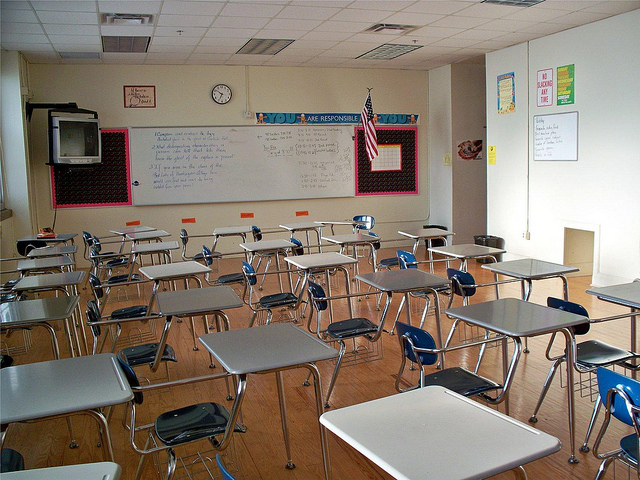A look back at the history behind ‘American Born Confused Desi’ and where it’s gone since

July 24, 2014
In a memorable scene from the 2001 indie film American Desi, Princeton freshman Krishnagopal Reddy, a second-generation Indian American born and brought up in a Jersey suburb, struggles to woo a co-ed at a college party when an Indian-born romantic rival intercepts him. In the confrontation that ensues, the competition shoves “Kris,” as he prefers to be called, out of the way and jeers at him with a phrase that thousands of American-born South Asians have heard over the years:
“What’s your problem?” Kris exclaims.
“I got no problem, ABCD.”
“What did you call me?”
“ABCD. An American Born Confused Desi.”
“Who are you calling confused?”
It’s a question that’s since been echoed by many South Asian American millenials intimate with the stinging term firsthand. ABCD. American Born Confused Desi.
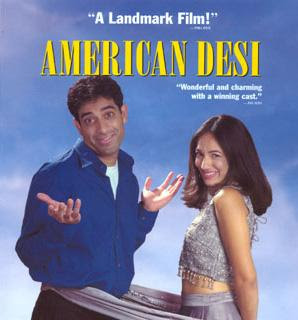
The South Asian Journalist Association style guide dating back to 2003 defines ABCD as a “slightly derogatory name that first-generation South Asians in the U.S. use to describe children who were born and brought up in ‘America’ and are ‘confused’ about their South Asian background.” Wikipedia even includes it in its list of “ethnic slurs.” Most recently, after Indian American Nina Davaluri stepped forward to accept her Miss America crown, Wall Street Journal language columnist Ben Zimmer picked apart the phrase desi and called ABCD “a way for first-generation immigrants to make light of second-generation youth who have ostensibly lost touch with their roots.”
But if we look back further, the history of how “ABCD” came to be reveals an interesting side to the politics of South Asian immigration to the U.S..
In 1965 with the passing of the Hart-Celler Act, the U.S. Congress abolished a xenophobic quota system that had barred Asians, Latin Americans, and Africans from emigrating to the United States since the 1920s. The Act ushered in a new era of immigration. Unlike the Sikh laborers who settled along the West Coast beginning in the late 19th century or the Bengali sailors who made Harlem, New Orleans, and Detroit home several decades later, the majority of those arriving immediately post-1965 were highly skilled, educated, and middle-class. In 1965 alone the Act allowed 170,000 immigrants to leave India and come to the States.
Immigration from South Asia continued to grow in the years that followed. Between 1980 and 2010, according to a report by the Pew Research Center based on U.S. Census data, the Indian-American population alone went from less than half a million to almost three million, a 686.5% increase. An increase that accounts only for Indian Americans—overlooking Pakistani Americans, Sri Lankan Americans, Bangladeshi Americans and others South Asians and who may utilize the phrase desi in their particular communities.
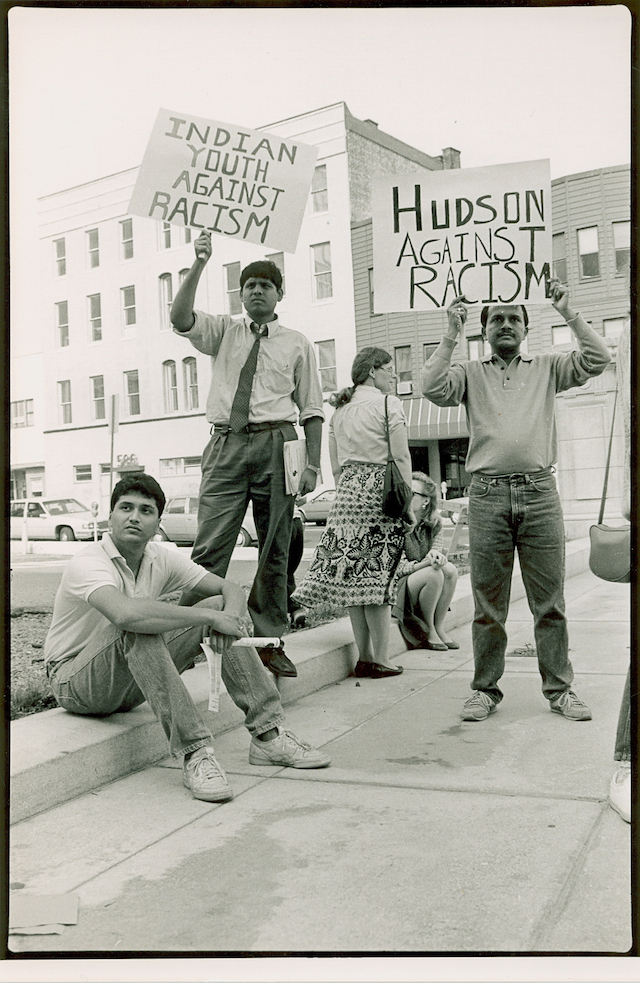
According to Vijay Prashad, who called the acronym “ponderous and overused” in his 2000 book The Karma of Brown Folk, “ABCD” was likely coined in the mid- to late-1980s and used on college and university campuses in the U.S. where subcontinent migrants intersected with younger South Asians born in the U.S. to the post-1965 generation. It was during that same period that the hate group Dotbusters first appeared, publishing a threatening manifesto in a July 1987 issue of the Jersey Journal that read, “We will go to any extreme to get Indians to move out of Jersey City.” It was no idle threat. Between 1985 and 1993, numerous South Asians reported incidents of injuries and harassment.
According to Prashad, racism toward South Asians played an underlying role in the development of the divisive term. “When young people born to the post-1965 migration generation came to college, their lives were lived through U.S. racism.” For first generation subcontinentals, on the other hand Prashad says, “the exposure to racism was not central to their social development. So when they got to college they retreated often into desi enclaves.”
At that point, Prashad says “ABCD” was coined as a counter-slur to “FOB” or “fresh off the boat,” a term thrown at subcontinentals by various American-born South Asians who sought to distance themselves from their immigrant identities. Says Prashad, “It took time and the major racial attacks in the aftermath of 9/11 for these two wings of desis to find common ground and for the terms ABCD and FOB to yield.”
Abhishek Tripathi, who grew up in the Bay Area in the early 1980s and went on to co-found Sepia Mutiny, a now-defunct blog and discussion forum for second-generation South Asian Americans, recalls hearing “ABCD” often during his younger years. “Racism or stereotyping against Indian Americans was pretty common and the last thing many wanted was to be lumped together with someone even more foreign than themselves,” he says. “’FOB’ was an easy way to separate yourself, even if only in your own head.”
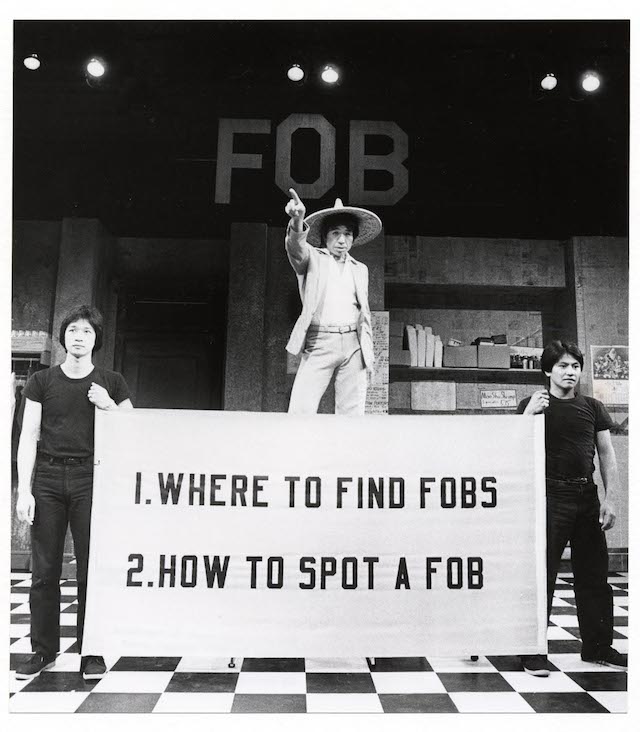
The alphabet soup was appropriated in part from another immigrant community. “In the Chinese community,” recalls Amardeep Singh, English professor at Lehigh University, “both ‘ABC,’ ‘American Born Chinese,’ and FOB were in wide usage going back to the 1970s and 80s.” He references the Obie award-winning 1980 play FOB by David Henry Hwang as an example. “That both terms are derogatory and mutually so (ABCDs refer to recent immigrants as FOBs while FOBs mock ABCDs) reflects the precarious and unsteady ground Asian immigrants after 1965 found themselves on,” says Singh. “Everyone was unsure of him or herself—there’s no happy or celebratory nickname for an Indian American immigrant that counterbalances these two insulting terms.” It would be several decades before the term took on a more comical meaning—most notably in the upcoming ABC series “Fresh Off the Boat,” based on chef Eddie Huang’s memoir.
But since the term became widespread, South Asians in America have sought a way to reclaim the phrase as their own. Take Prashad, who along with a friend, Kaleem Siddiqui, took the term “ABCD” and expanded it from A to Z, playfully coining “American Born Confused Desi Emigrated From Gujarat House In Jersey Kids Learning Medicine Now Owning Property Quite Reasonable Salary Two Uncles Visiting White Xenophobia Yet Zestful.” “I’ve always found “ABCD” a silly term,” he says. “No one is really more confused than anyone.”
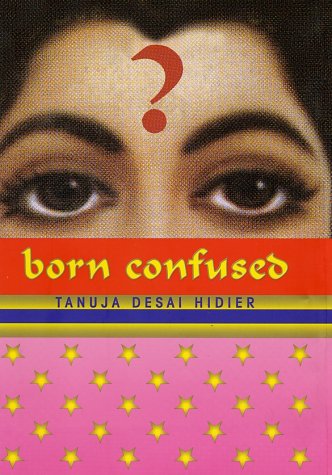
Tanuja Desai Hidier, the author of the recently re-released Born Confused, a cross-cultural coming-of-age young adult novel published in 2002, heard “ABCD” in the 1990s. “My reaction was mixed,” she says. “There was a sense of excitement that there was a term for us Indian Americans who till that point had seemed to inhabit a neither-here-nor-there space. And as well, a sense of indignation—at being named (and in a somewhat derogatory manner) by people who were not in fact part of this space.” In her novel, her protagonist, Dimple Lala, decides to take the acronym and flip it on its head, turning the “C” for “Confused” to a “C for “Creative.” American Born Creative Desi.
Even while movies back in India, such as the 2013 Malyalam film American Born Confused Desi, continue to poke fun at the expense of American-born South Asians, others meaningfully identify with the term. For instance, there exists an American Born Confused Desi subreddit, along with dozens of “ABCD” blogs. And just this past October Tom Silva, the Indian-American frontsman of Chicago-based band Clara May, released a song titled “American Desi”. Iterations of “ABCD” also include “American Based Confused Desi,” “American Born Confident Desi,” “American Born Comfortable Desi,” “American Born Classy Desis.”
So what’s the future of “ABCD”? Desai Hidier, whose sequel to Born Confused—Bombay Blues—comes out this August along with an accompanying album, has an answer. “For me the term ABCD was a vital starting point to a work in progress—an alphabet I hope to continue expanding, translating and redefining as I, we, go.”



